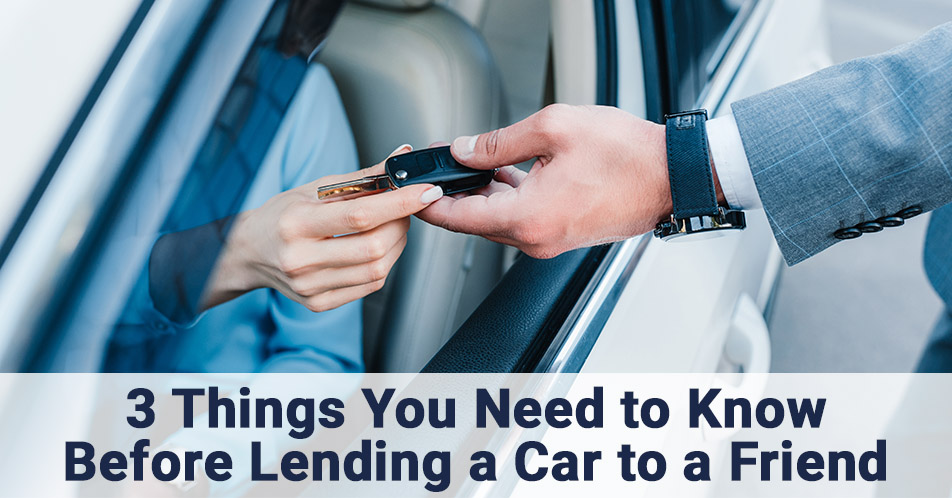
It is common knowledge that if you give someone permission to drive your vehicle, you will likely be held vicariously liable for any property damage or injury they cause while they have it. But did you know that you also cannot loan your vehicle out with conditions, and that you will still be held responsible for any damages caused by that driver?
1. Vicarious Liability
So, what is vicarious liability? Vicarious liability is a legal idea. It means that you can be held responsible for the actions of a third party. A common example of this in the world of employment. A supervisor may be responsible for the actions of the wrongdoing of their employee. For example, if a construction worker causes property damage while working, the company employing them will very likely be held responsible for the actions of that construction worker, and the ensuing property damage.
2. Can I be held responsible for the actions of someone I lend my car to?
Vicarious liability can also extend to the world of insurance law as well. The owner of the vehicle is liable for the vehicle even if someone else borrowed the vehicle.
In Alberta, when you give someone permission to drive your vehicle, this permission is unconditional. In other words, you cannot give permission to someone to use your vehicle, as long as they follow certain rules, like returning the car by a certain time or so long as they don’t speed. You also cannot take back that permission when the other person still has the vehicle in their possession. You will still be held responsible for the actions that the person you lent the car to if they cause an accident. If your car was involved in a motor vehicle accident while you lent it out to someone, contact your Edmonton car accident lawyer immediately to protect yourself and your vehicle, and to get your vehicle repaired quickly and properly.
An interesting example of this is Mansour v. Rampersad, a case decided in Alberta in 2022. In that case, Roger Rampersad was given permission to drive a vehicle, so long as the vehicle was returned by a specific time to the owner. However, Roger did not return the car by the deadline, and the car was reported by the owner to the police as stolen. After the car was reported stolen, Roger caused an accident and was sued for the damages. But the owner of the vehicle was sued as well, and the Court found the owner responsible, even though the vehicle was reported stolen.
Both the driver and the owner of the vehicle were held responsible for the damages, and owner’s insurance on the vehicle covered the loss.
3. Vicarious Liability Exceptions?
There are very limited exceptions to the rules on vicarious liability. One exception to the rule is if you loan out your vehicle, you can place a condition that this vehicle is only being loaned to that one specific person. In other words, the person borrowing the car cannot later give permission to someone else, simply because they are in possession of that vehicle. For example, if you rent a car, one person might be specified on the rental agreement as the only person allowed to drive that car. That named driver is generally not able to give permission for someone else to drive the rental car.
Another exception is if you give your vehicle to businesses that deal with transporting vehicles or repairing vehicles, such as tow truck operators, valet drivers, detailers, or mechanics. If for example, a mechanic is in an accident while on a test drive for example, typically it will be the mechanic’s specialized garage insurance policy that will cover the loss. If a business has your vehicle, then their insurance will generally be responsible.
Personal Injury Lawyer – Edmonton
Extensive Knowledge Unwavering Dedication
780-428-6565
Free consultation

